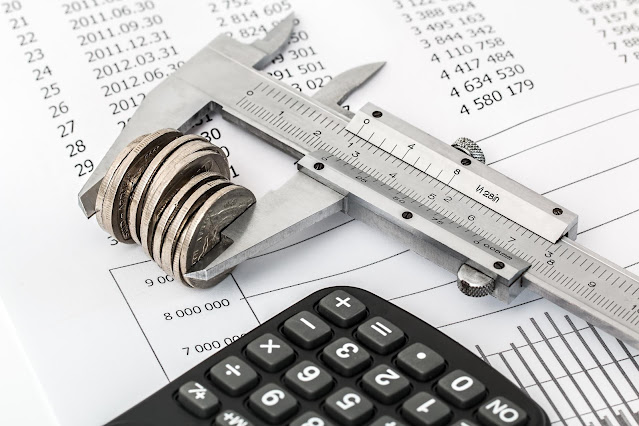How to Save Even if It's Tough
October 26, 2022If your household lives from paycheck to paycheck, it is tough to save but if you plan your spending and become conscientious with it, it is doable. Coping up in times of emergencies is possible if you save. As the elders would say, "Kung may isinuksok, may madudukot."
If you are like me who wasn't taught financial literacy at an early age and learned through experience, here are some of the strategies that I do with my family which can help you save even if it's tough.
- Only buy things that you need. You should know how to discern between "wants and needs". It will not just save you money but also time in cleaning and decluttering your home.
- To conserve money, pay cash for the things you'll soon use up, such as food items, toiletries, or cleaning supplies. Use a credit card for the things you'll continue to use after you've finished paying for them or for emergencies such as medical bills in case you have no health insurance.
- Prepare shopping lists for a full week of planned menus to save on supermarket costs. To make good use of store specials and leftovers, always plan menus.
- Avoid buying nonfood items like kitchenwares or school supplies for sale in supermarkets as much as possible. Shop for such items at discount outlets specializing in nonfood products where you'll usually find these products priced lower.
- You'll save money buying meats and cheeses in chunks and slicing them yourself rather than sandwich fixings already sliced. Convenience has a price.
- To save you time and money for gas or transportation, you may shop in the comfort of your home or order your necessities online. You may also avail of shop vouchers and free shipping when you do.
- Make your own cleaning products. It offers substantial savings over commercial cleaning products.
- Buying clothes out of season allows you to save 50 percent or even more on in-season prices. Storewide clearance sales are usually held after Christmas or weeks after the school opening.
- There are storewide clearance sales after Christmas that you can take advantage of. You'll find huge bargains on clothes, linens, bedding, shoes, and more.
- The best time to buy back-to-school apparel, bags, and lunch boxes is at the end of September.
- When you live in cold countries, November is a good month to purchase coats at reduced prices because merchants offer bargains to hype pre-Christmas business.
- Buy the best quality you can afford when you purchase furniture to make good financial sense. Cheap furniture wears out or goes out of style quickly which may lead to purchasing more cheap furniture. High-quality furniture stays in style and in good condition for many years.
- Don't always associate brand names and high prices with high-quality merchandise. Some of the best bargains are lower priced or unbranded.
- Don't forget to bring a calculator when you shop. It makes it easier to compare prices and it makes sure you're getting the best-priced items.
- Cut down your subscription bills by subscribing to services that you really need like the internet.
- When a repair estimate is more than 15 percent of an appliance or gadget's replacement cost, seriously consider buying a new one.
- When shopping for huge and durable items, to save on gasoline and wear and tear on your car you may opt for online shopping or avail of the shop's free delivery or discounted delivery services.
- In most cases, you may really don't need a second car. Maximize the use of your only car by arranging your family's schedules and appointments accordingly. Not only will you save the price of the car but you'll save on insurance and maintenance costs, and state and local annual fees.
- If you live in a place where public utility vehicles are readily available, owning a car may not be a necessity. Commute instead. It will save you from paying parking fees, insurance, etc.
- Consider upgrading yourself through further education to increase your salary potential too. Many employers can help out with tuition. If the company does, take advantage of the program.
- Remember, avoid visiting the hospital for laboratory services or choosing to be admitted on a weekend. Some hospitals charge extra during weekends. You may also curtail hospital expenses when admitted on a weekday, especially on Monday or Tuesday. Friday admissions result in longer stays because doctors and consultants are not around on weekends for your discharge requests.
- Even if you have paid off a loan, continue paying the same amount to your savings account every month. You won't miss the amount so much because you are used to making the payment.
- If you find it difficult to save, force yourself to do so by purchasing savings bonds under your payroll savings plan when you're employed. By authorizing small, regular deductions from your paychecks, you can build sizable savings over the years. When you have built up a nest egg, as they say, divide it among several sound investments to save more.
- To figure out how much money you will have saved up during a set investment period, you may use Savings Calculator to help you. First, you have to enter the initial amount that you would like to set aside. Then enter the interest rate along with how long you would like to plan to invest. Next, you enter the amount of money you plan you deposit or withdraw periodically. When you enter these data, the calculator will compute and inform you about how much money you will have saved up and the taxes that go with it, and more. Calculations even update automatically when you change your input. Cool, isn't it? A tool such as this makes your saving journey much easier.
Saving is tough, but it is doable if you set yourself to do it. Nothing is possible. Your positive attitude towards it will matter.
Photo Credit: Pixabay


















































.jpg)

.jpg)